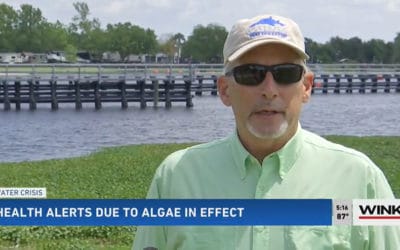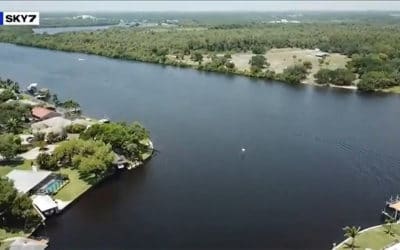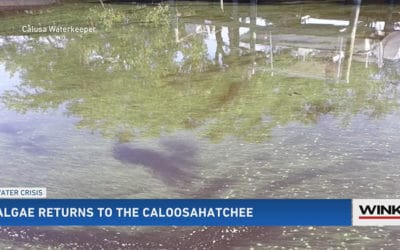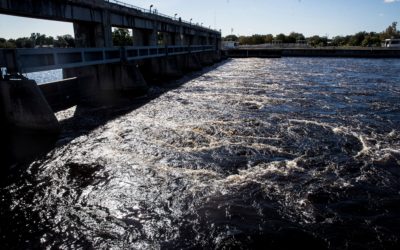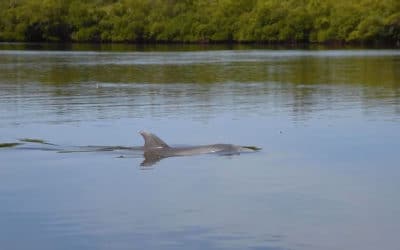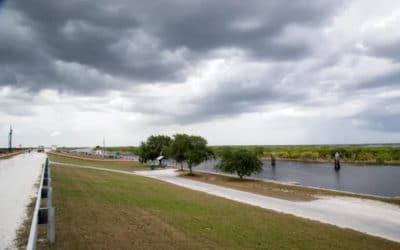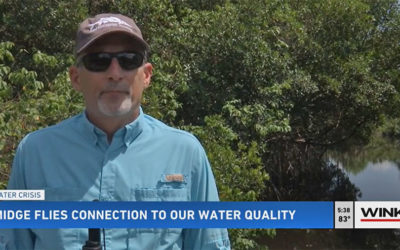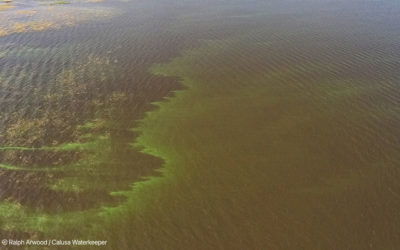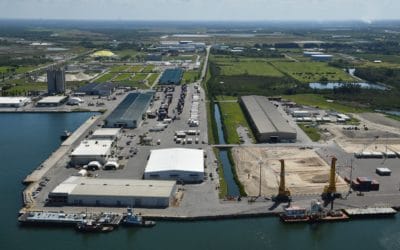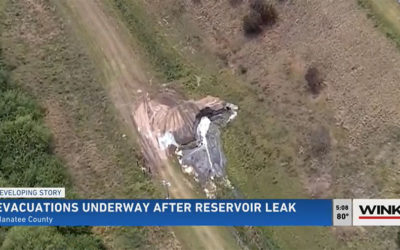Calusa Waterkeeper
In the News
Two Algae Health Alerts Issued in Lee County as Community on Watch
Two areas in Southwest Florida are being closely monitored as fears of another algae outbreak grow. The Franklin Lock in Olga and the Alva boat ramp are both under an algae health alert. Calusa Waterkeeper John Cassani took a video at the Franklin Lock of the bloom.
Algae Spreads Across Canals off Caloosahatchee
People are finding algae in the Caloosahatchee near Fort Myers Shores and Alva. The Lee County Health Department sent warnings about the potentially toxic water this week. The county said the Florida Department of Environmental Protection tested it and it was positive for algae organisms.
DeSantis Announces Agreement on Everglades Reservoir
Progress on the Everglades Agricultural Area (EAA) Reservoir Project was announced on Earth Day by Gov. Ron DeSantis. South Florida Water Management District governing board voted to authorize an agreement with the U.S. Army Corps of Engineers to begin construction on the reservoir component this year.
Health Alert and Warning of Blue-Green Algae Issued for Alva Boat Ramp in Lee County
The Florida Department of Health in Lee County is issuing a health alert for the Alva Boat Ramp based on reports of algae toxins found by the ramp. When blue-green toxins are detected, DOH recommends individuals avoid contact with the water.
Blue-Green Algae Causes Health Officials to Close Recreational Area in Caloosahatchee
State health officials released a public advisory for the upper portion of the Caloosahatchee estuary, saying the public should not swim there or touch the water. The Florida Department of Health in Lee County says it found blue-green algae toxins in the waters surrounding W.P. Franklin Lock.
Words from the Waterkeeper, Episode 27
In this week’s Words from the Waterkeeper episode, John meets with Bonita Springs resident Cope Smoak, an expert on mayan cichlids and one of our wonderful dedicated volunteers keeping a vigilant eye on our local waters.
Parts of Historic Everglades Showing Signs of Blue-green Algae with Summer on the Horizon
Water quality experts are paying more attention to Lake Okeechobee as blue-green algae levels continue to spike in some areas of the system. The FEDP reported elevated levels of microcystins in parts of the Lake and traces of the toxic bacteria in the upstream portion of the Caloosahatchee.
Water Quality Tested After Midge Flies Invade Areas of Lee County
After swarms of midge flies invaded areas of Lee County, water quality was cited as a possible reason. The bugs covered walls and lanai screens, traveled in swarms, and caused quite a commotion, especially in areas along the Caloosahatchee.
Implementation of Governor DeSantis’ Blue-Green Algae Task Force Recommendations Act – SB 1522 / HB 1225
The current bill language for SB 1522 has lost or is missing several key recommendations of the Blue-Green Algae Task Force. It’s imperative that the legislature act now, as yet another major blue-green algae bloom has formed on Lake Okeechobee and other areas of the state.
Balancing Act: Lake O Releases Slowed to Help Protected Species During Nesting Season
Federal water managers slowed releases to both the Caloosahatchee and St. Lucie rivers in an effort to slow Lake Okeechobee’s recession rate. Average flows to the Caloosahatchee were 2,000 cubic feet per second, but the Army Corps lowered that to 1,200 cubic feet per second.
Piney Point Wastewater May Fuel Harmful Algae Bloom Along Florida Coast
Environmental groups worry that releases from the Piney Point wastewater treatment facility near Tampa Bay will eventually fuel an algae bloom that could harm areas of coastal Florida. Nutrient-rich waters from the treatment facility will offset natural balances in the coastal estuaries and eventually end up in the Gulf of Mexico, where red tide initiates.
Officials Announce a Second Breach Concern in Florida Phosphate Reservoir
A wastewater reservoir in Manatee County is on the verge of collapse. If the Piney Point reservoir collapses, a 20-foot wall of water is expected to flood the area. A drone discovered a possible second breach in the reservoir as more pumps were headed to the site to prevent a catastrophic flood.

























